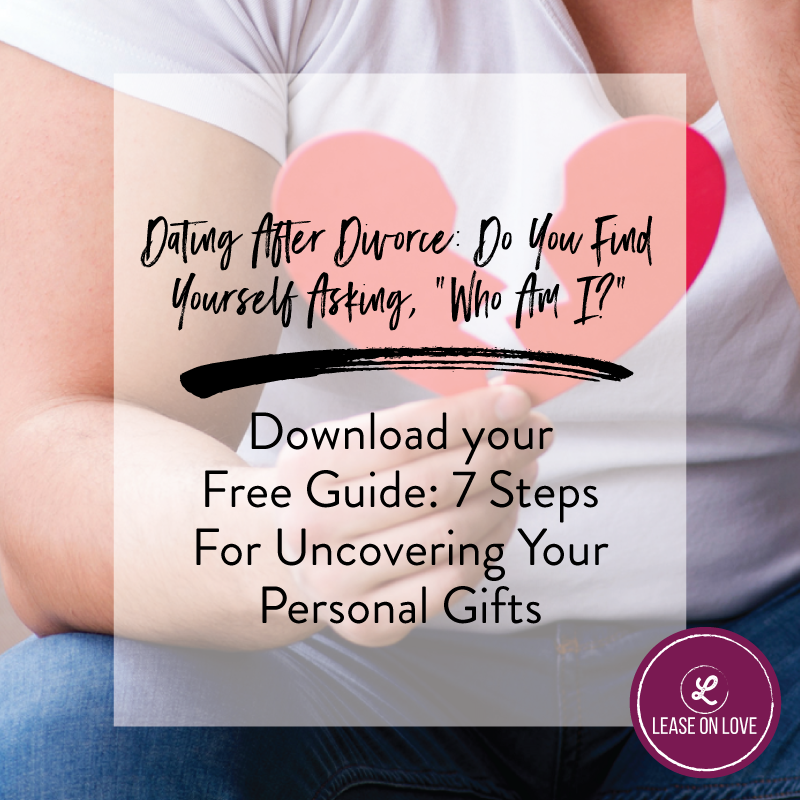“Oh my god, I’m alone. ALONE.”
“I’m single…I haven’t been single in years; I don’t even know how to be single anymore!”
“I’m a failure, what’s wrong with me?”
Dating After Divorce: Do You Find Yourself Asking: Who Am I?
Does any of this sound familiar? I know when I found myself single after 13 years of marriage, I sure felt this way.
Whether it was a long time coming or a complete surprise, divorce is sure to stir up some major feelings. It’s completely natural to feel panicked once the dust settles. After all, you’re beginning a new chapter in your life and change, even when welcomed, can bring anxiety caused by uncertainty.













“Oh my god, I’m alone. ALONE.”
“I’m single…I haven’t been single in years; I don’t even know how to be single anymore!”
“I’m a failure, what’s wrong with me?”
Dating After Divorce: Do You Find Yourself Asking: Who Am I?
Does any of this sound familiar? I know when I found myself single after 13 years of marriage, I sure felt this way.
Whether it was a long time coming or a complete surprise, divorce is sure to stir up some major feelings. It’s completely natural to feel panicked once the dust settles. After all, you’re beginning a new chapter in your life and change, even when welcomed, can bring anxiety caused by uncertainty.